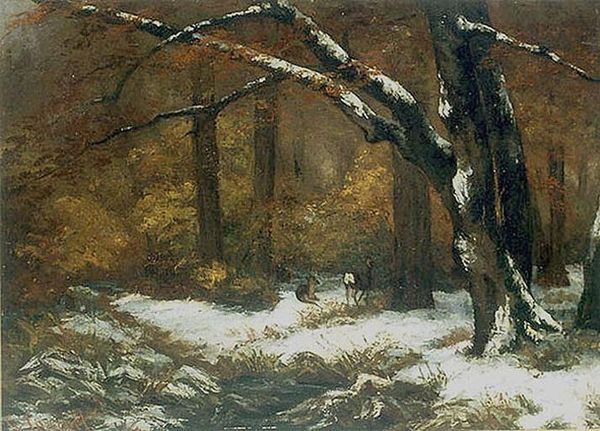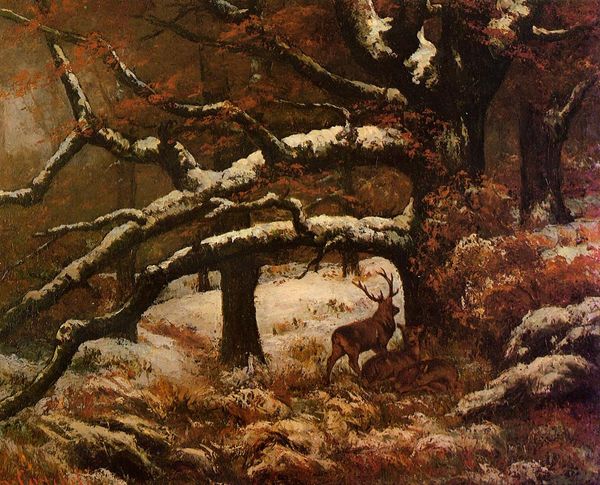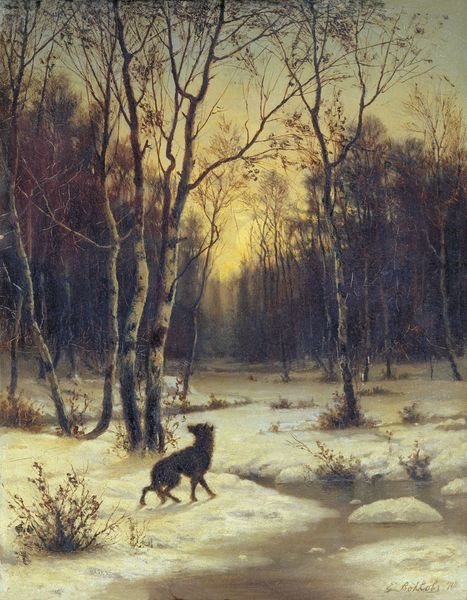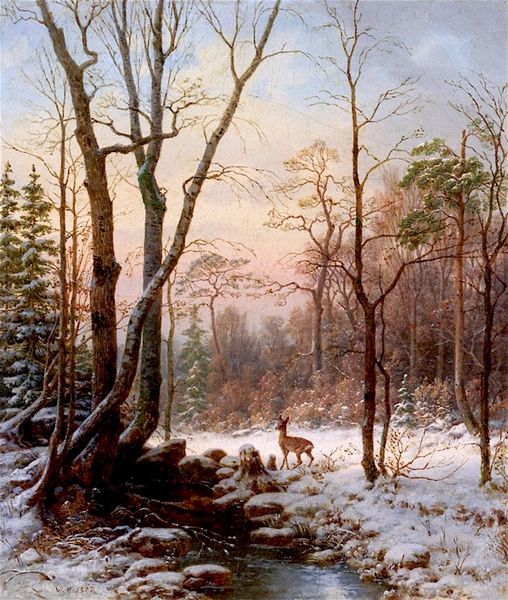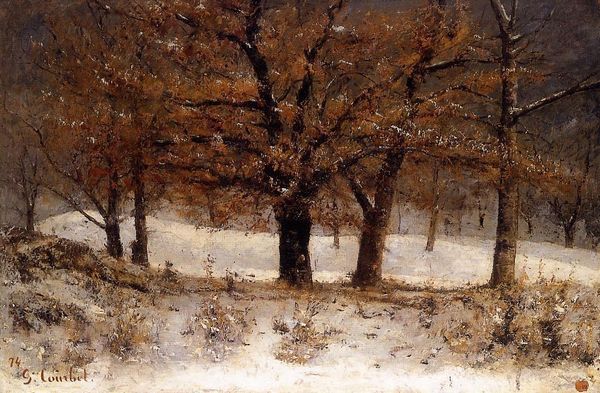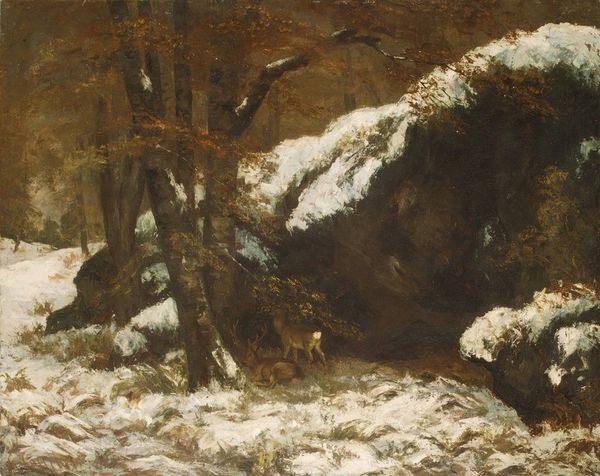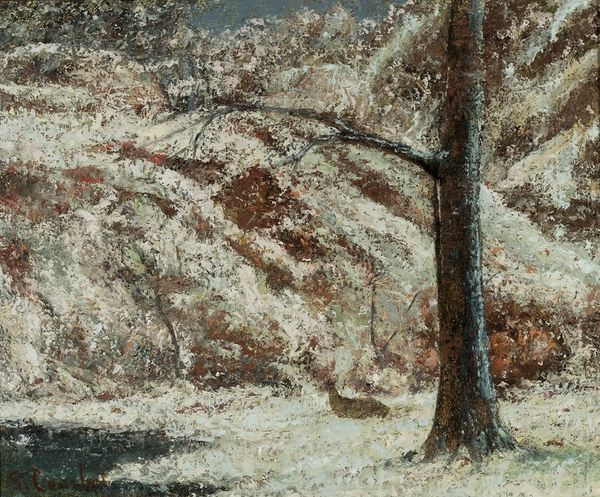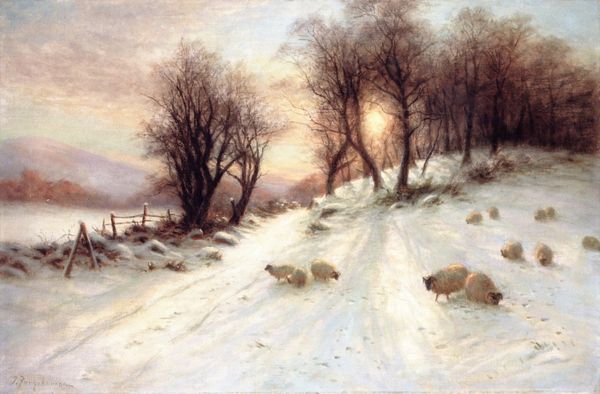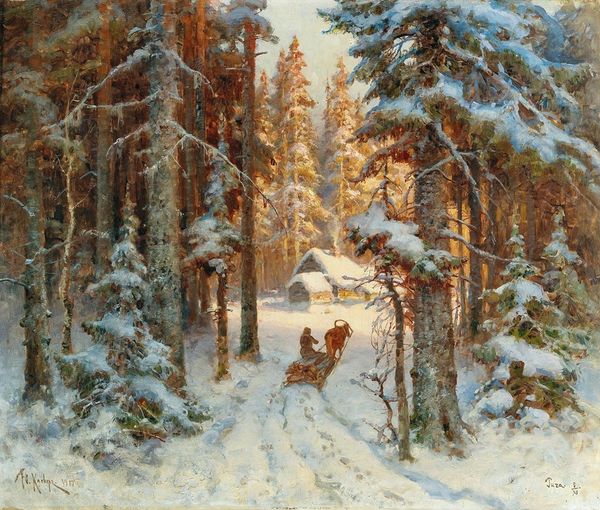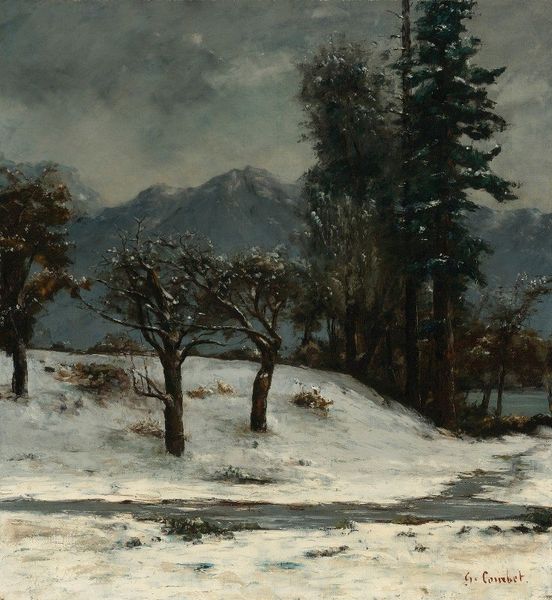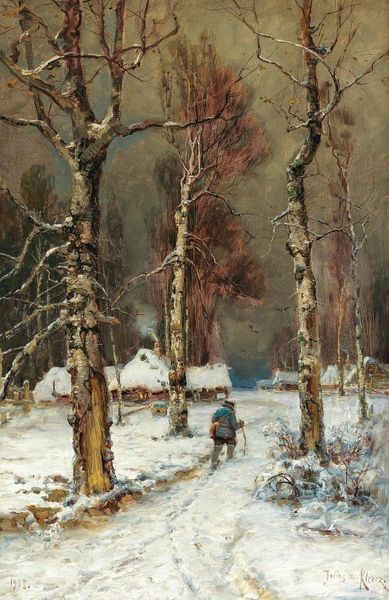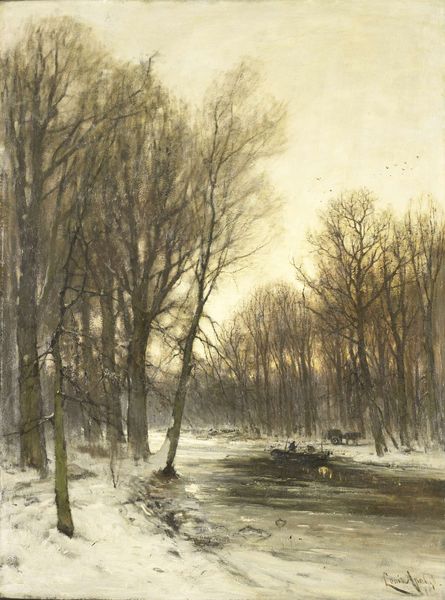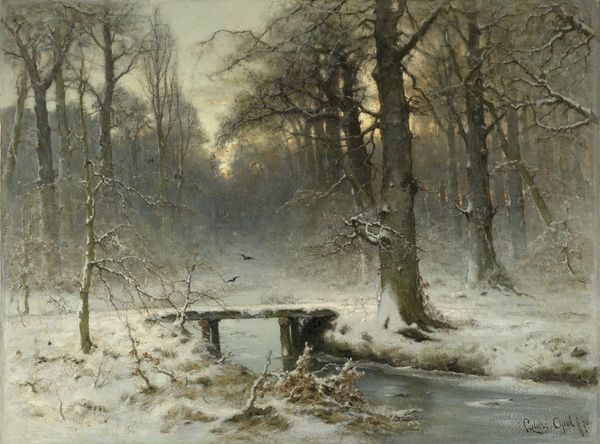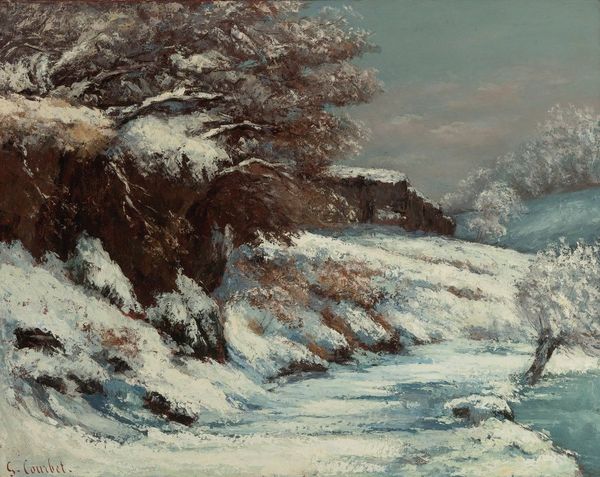
painting, oil-paint
#
tree
#
animal
#
painting
#
oil-paint
#
landscape
#
winter
#
oil painting
#
forest
#
realism
Copyright: Public domain
Curator: Before us is Gustave Courbet’s "Deer Taking Shelter in Winter," painted in 1866. You can currently find this evocative landscape housed at the Musée des Beaux-Arts de Lyon. Editor: Immediately, I’m struck by the quiet desperation. The way the snow weighs down everything, even the light…it's a picture of hushed endurance, wouldn't you agree? Curator: I think that's astute. The image speaks volumes about the relationship between living creatures and the severity of the natural world. Consider how Courbet uses the deer not simply as figures within a landscape but to evoke empathy. Sheltering itself as well, nature presents many forms of resilience through winter’s stark representation. Editor: Absolutely. The deer become symbols. And the way Courbet paints the snow… it's not pristine. It's chunky, almost oppressive. I feel the weight of the season as a living burden. Did the landscape around his home shape these melancholic moods, do you suppose? Curator: Likely, yes. Courbet's attachment to the Franche-Comté region is well-documented. We can examine it through his deliberate Realist style, where nature isn’t idealized but depicted in its raw state. Think, too, of the cultural understanding of winter in the mid-19th century; the lack of resources for many, reliance on land and hunting. These hardships translate here, creating this palpable scene of isolated refuge and waiting. Editor: I think you hit on a pivotal point. It is in this sense that the picture seems honest; as in unadorned of glamour but brimming with real impressions. You can smell the wet bark; taste the snow on your face. Perhaps he aimed at more than just portrayal but complete transference instead. Curator: Indeed. Courbet uses his art as witness; an exploration of not just place but experience. "Deer Taking Shelter in Winter" serves not merely as a Realist painting, but a reminder of humanity's dependence on the wild. Editor: In other words, Courbet’s stark vision here reminds us of an unescapable bond. A reflection that still echoes loud even in our current times!
Comments
No comments
Be the first to comment and join the conversation on the ultimate creative platform.
